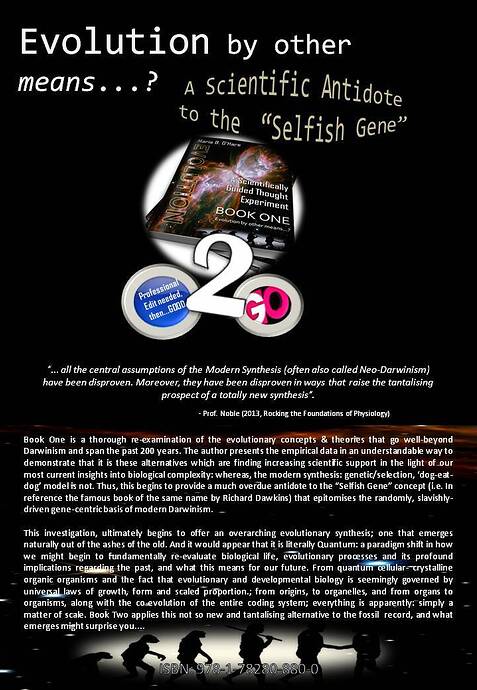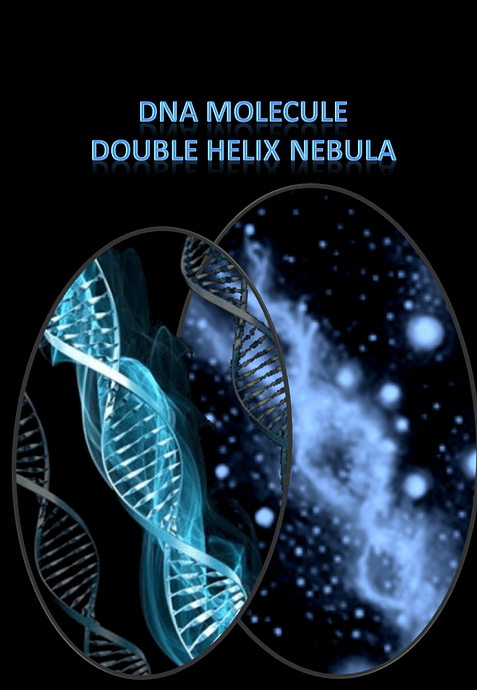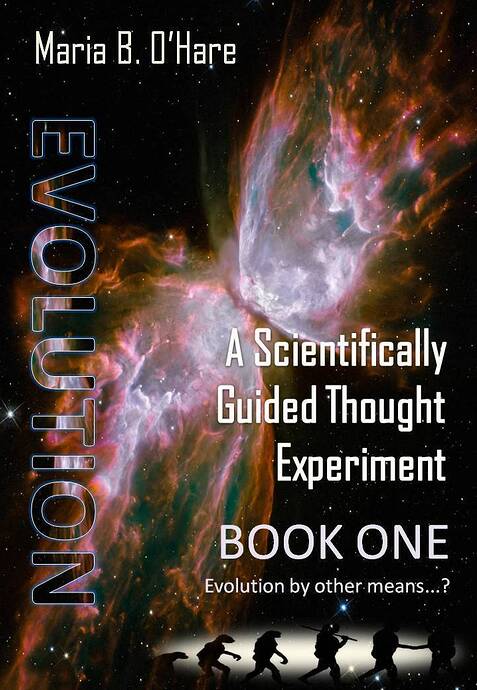Hello, Michael, thanks for welcome and positive response to my conversation
starter. The science to substantiate the major implications of epigenetics
is very solid. All I have done is to bring these, otherwise: disperate
science papers spread accross diverse discipline together and hopefull,
made sense of them all by finding the common threads and overarching
principle behind them (fractal/scaling laws).
I was particularly interested in your contemplation of the implications of
epigenetics for health and medicine. And considering the ethos of this
forum, (positive future solution) I am delighted to say that: you would not
believe the magnatude of epigenetic applications/therapies to medicine;
some have even gotten FDA approval - for cancer treatments. See links to
science papers http://www.ncbi.nlm.nih.gov/pubmed/19752007
http://www.ncbi.nlm.nih.gov/pmc/articles/PMC4251063/
All in all, regarding the question you raised about medical/health
implications, the principle is that epigenetic effects are the trigger
(very few cancers are genetically determined and epigenetics switches genes
on and off or work like a dimmer switch to chemically express or not
express the genes or whole sequences), as epigenetics factors
(environmentally-caused in the cellular context) are reversable, it is a
matter of reversing the programming (faulty - not genetic mutations - this
is truly not how species change, nor, does the gene-centric view provide
answers to our future health and welbeing) epigenetically (usually via
biochemical applications).
To substantiate what I am saying: again, if others who are interested in
this topic might like to visit the website front page:
http://diggingupthefuture.com which you took the time to view (much
appreciated). You or others might also like to watch a brief overview of
epigenetics via youtube or my website to give you an intertaining and
hopefully informative idea of the epigenetic implications for both
evolutionary processes and medicine etc.It is entitled: The Epigenetic
Antidote to the Selfish Gene.
https://diggingupthefuture.com/2016/01/05/epigenetic-antidote-to-the-selfish-gene/
https://diggingupthefuture.com/2016/01/05/epigenetic-antidote-to-the-selfish-gene/
Direct link to youtube:
https://youtu.be/jwtSlkao6hk
Plus, in response to your idea that epigenetics may play a role along with
selection, epigenetics is not the whole story, but Nature has an
evolutionary wild card: Jumping Genes - more of this detail and why it is
Natural Genetic Engineering that is a much better explanation than Natural
Selection: (Lots on my website about this - but if you look up James A
Shapiro, in relation to NGE - alternative, you get an idea where the
science is going on that one).
In addition to this, there is a free kindle book of evolutionary quotes
(you need a Kindle or an app Kindle reader) is attached.I hope it is the
most uptodate one. The quotes might amuse you or anyone interested and the
title of the book is: But Old Mr. Darwin wasn’t to Blame. This is also
available in other formats at my blog.
I am so glad that you have responded by joining me in a good conversation.
It is not about being right or wrong, but simply having that conversation
and being willing to open our minds up to the possibilities that are
grounded in sound science.
Kindest Regards
MariaBrigit
https://www.avast.com/sig-email?utm_medium=email&utm_source=link&utm_campaign=sig-email&utm_content=webmail
Virus-free.
www.avast.com
https://www.avast.com/sig-email?utm_medium=email&utm_source=link&utm_campaign=sig-email&utm_content=webmail
<#m_-8551242472483076776_DDB4FAA8-2DD7-40BB-A1B8-4E2AA1F9FDF2>





 Perhaps by turning it into a sci-fi story? The Less Wrong community did something similar by encoding some of its lessons on rationality into a Harry Potter fanfic called “
Perhaps by turning it into a sci-fi story? The Less Wrong community did something similar by encoding some of its lessons on rationality into a Harry Potter fanfic called “